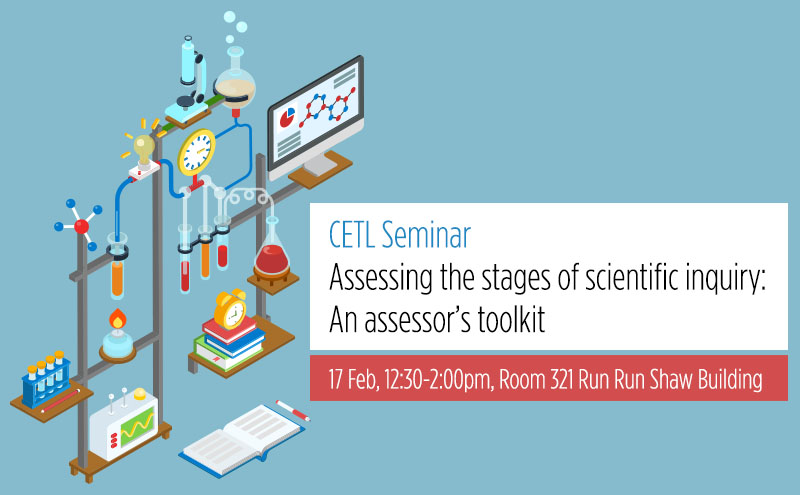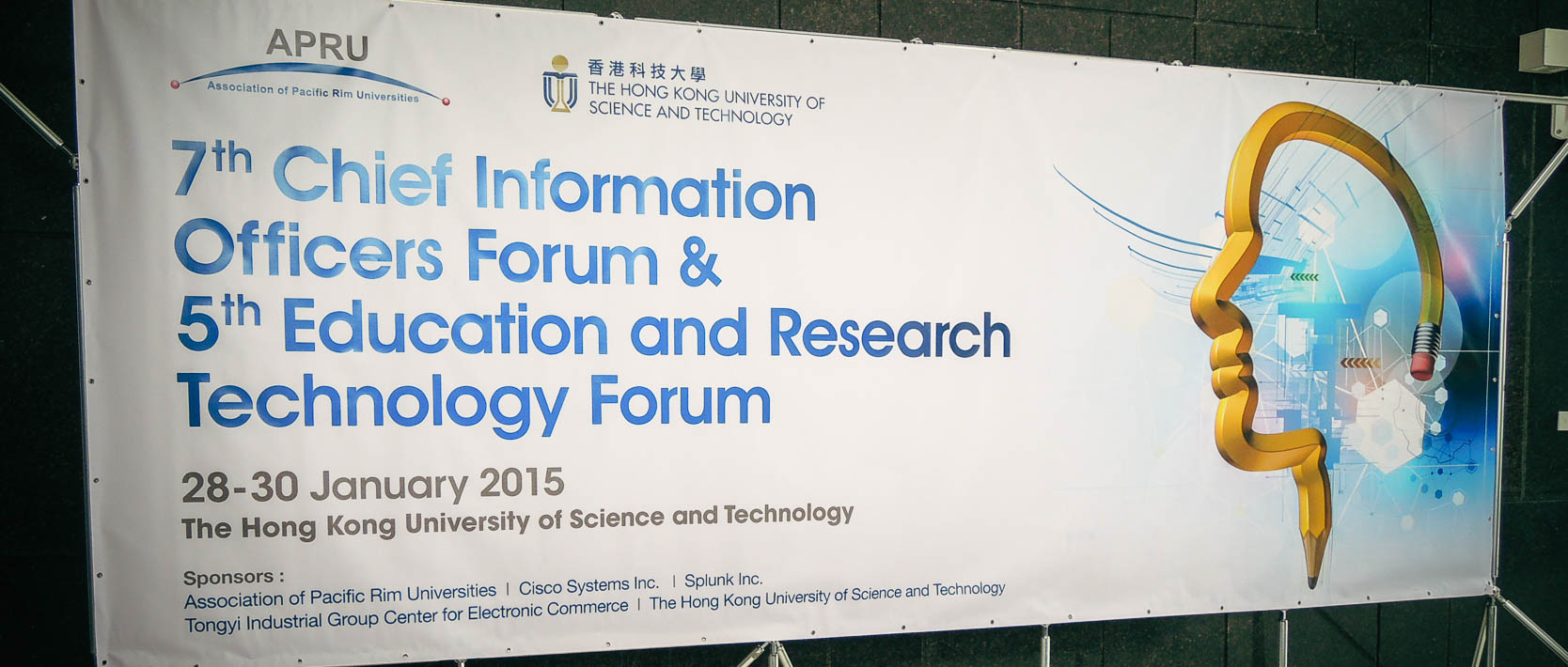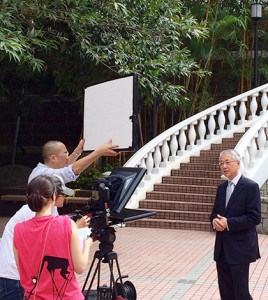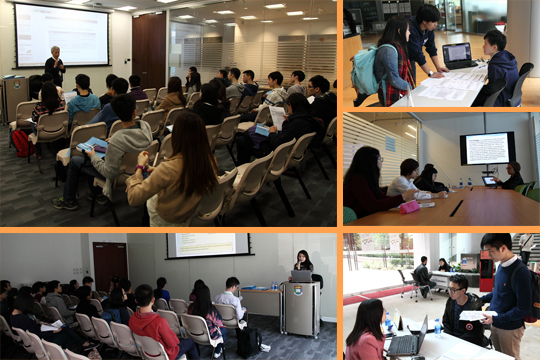
Organized by Centre for the Enhancement of Teaching and Learning (CETL)
Chair: Dr Susan Bridges, Associate Professor, Centre for the Enhancement of Teaching and Learning/ Faculty of Education, HKU
Date : 17th February, 2015 (Tuesday)
Time : 12:30pm – 2:00pm
Venue : Room 321, Run Run Shaw Building
Abstract:
It is clear that science, health sciences and engineering students need to be able to understand and engage with all stages of the scientific process to become effective graduates. However, many of our traditional assessments still focus on subject specific knowledge, rather than the broader skills and understanding necessary for scientific inquiry.
This seminar will explore how we can construct novel, valid tasks that assess each stage of the scientific process. It will focus on specific, pragmatic examples of assessments that can be adapted for the basic, clinical, and applied sciences and engineering. Through these examples, the seminar will illustrate how the nature of the assessment task can guide student behaviour and promote more effective learning.
The seminar will be relevant to any member of staff involved in assessing students in science, health sciences or engineering, particularly those looking for ideas to move beyond more traditional assessments. Anyone with more experience or expertise in innovative assessments is encouraged to attend and contribute to the general discussions after the presentation.
About the Speakers:
 Dr Vikki Burns is Director of Teaching Quality Enhancement for the College of Life and Environmental Sciences at the University of Birmingham, UK. She is currently visiting The University of Hong Kong on a Universitas 21 fellowship.
Dr Vikki Burns is Director of Teaching Quality Enhancement for the College of Life and Environmental Sciences at the University of Birmingham, UK. She is currently visiting The University of Hong Kong on a Universitas 21 fellowship.
Dr Burns has recently rewritten the classic book ’53 Interesting Ways to Assess Your Students’, which will be published by Frontinus Ltd in 2015. This accessible book provides ideas and considerations for different types of assessment. It focuses on tips for practitioners rather than in depth theoretical discussions. As such, it’s the ideal companion for a new member of academic staff, or anyone who wants evidence based ideas but who doesn’t have the time to search them out from the primary literature.
Dr Burns is also on the management group for the University of Birmingham’s new Teaching Academy, and supports other academic staff to develop and evaluate their teaching practices. She has recently established a national network for Sport and Exercise Sciences departments at research-led universities to share good practice and build collaborations, and is looking forward to building more international links during her sabbatical in 2015.
Sandwiches will be served with coffee and tea.
For information on registration, please contact:
Ms Ivy Lai , CETL
Phone: 3917 8996; Email: laichun2@hku.hk.




